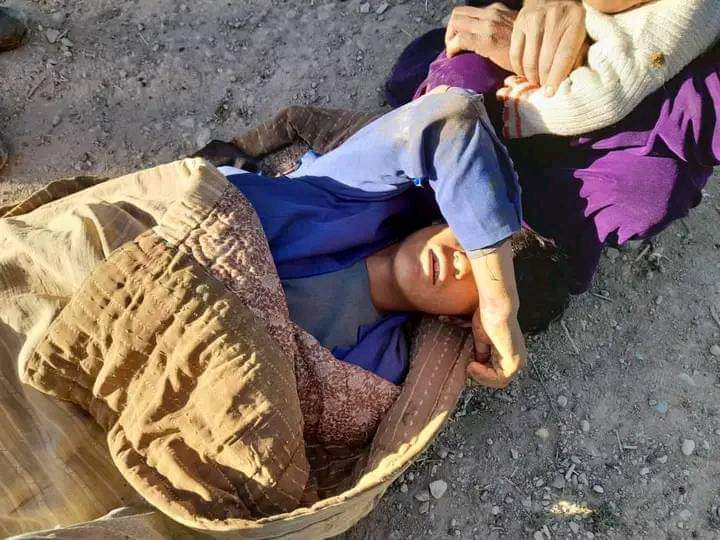
The Taliban and the Hazaras Issue in Afghanistan
The Taliban are the same students of Wahhabi extremist schools in northern Pakistan. They had called themselves the Islamic Emirate of Afghanistan since the 1990s when they occupied large parts of Afghanistan for several years. In fact, the Taliban is an ethnic-religious-military Islamist movement in Deobandi consisting of extremist Islamists in Afghanistan. Many governments and organizations have considered t Taliban a terrorist, and it is on the deny list of all countries except Pakistan. This group consists of several sub-groups, all of which were able to capture Kabul in 1996 under the banner of Mullah Mohammad Omar and, for a time, were the base and refuge of the al-Qaeda takfirists group. It was al-Qaeda’s host that opened the Americans to Afghanistan in 2001.
It is estimated that the Taliban had 75,000 fighters in 2021. Since the first Taliban group entered Afghanistan from Pakistan, their Pashtunism and anti-Hazara views have become apparent. In 1993, fighting between the Mujahidin in the Afshar area west of Kabul turned into full-scale violence against the Hazaras living in the area. One year after Abdul Malik Pahlavan (who was not a Hazara) killed 3,000 Taliban prisoners in Mazar-e-Sharif in 1997, the Taliban invaded Mazar-e-Sharif and began massacring Hazaras on suspicion of Shiites’ closeness to Iranians. In his speeches at various mosques in the city, Mullah Niazi was, the new governor of Mazar-e-Sharif, said the Hazaras are not considered Muslims and that the Hazaras must either become Muslims or be killed.
The Discrimination Against Hazaras in the Government of the Republic
Then, the Taliban government was overthrown by a US-led invasion of NATO forces; But when the last Taliban group was ousted in 2001, the Hazaras made progress in Afghanistan’s new government. During the Republic era, the Hazara regions had the highest turnout in the country’s best universities, and voter turnout in the Hazara regions was typically the highest country. At the same time, however, the Hazaras, despite being accepted to higher levels of universities, could not attend high-ranking administrative and military levels. The government tried to prevent them from attending more universities and educational centers in Afghanistan quotas. However, many grounds against the progress of the Hazaras were created at the same time by circles called Republicans.
On the other hand, the killing of Hazaras did not stop in recent years but continued. Most suicide attacks occurred in Hazara schools, mosques, and educational and sports centers. Therefore, Both the Taliban and ISIS were involved in the attacks and claimed responsibility for them. Attacks on villages in the Khas Uruzgan district in November 2018 were among those in which 70 Hazaras were killed in a terrorist attack. The responsibility for these other operations against the Hazaras remains unclear, and why? However, so far, no official or unofficial authorities in any ethnic government in Afghanistan have had accurate and transparent accountability for the life of Hazara.
For the past twenty years, the Taliban have sought to demonstrate their declarative policies of fighting the foreign enemy and the government and have refrained from waging ethnic warfare. In practice, however, the group’s policies led to ethnic confrontations. In 2018, after the government declared a ceasefire with the Taliban, the Taliban left the government and declared war directly against the Hazaras. This year, unlike all eighteen years earlier, the Taliban did not speak out against the government and foreign troops; Rather, they spoke directly of confronting the Hazaras in Afghanistan. At that time, the actions governments of Hamid Karzai and Ashraf Ghani Ahmadzai were no less than those of the Taliban. Hamid Karzai secretly, but Ashraf Ghani more openly pursued ethnocentric policies against the Hazaras in Afghanistan. In this way, it can be said that the conditions for the Hazaras in Afghanistan have improved over the past twenty years, but they have not achieved equality and justice as other ethnic groups.
On the other hand, Hazaras living in the southern provinces of Afghanistan continued to face unofficial discrimination by the Pashtuns. In recent years, Hazaras in Afghanistan have been exposed to terrorist attacks by the Taliban and other takfirists groups. Hazaras in Pakistan’s Balochistan have also been attacked by militant groups such as Lashkar-e-Jhangvi and ISIS. In recent years, efforts to improve the security situation of the Hazaras in the city of Quetta in Balochistan have often been successful. For example, wall-building and checkpoints made suicide attacks against Hazaras difficult. Although this made life more difficult for locals, it improved their security in Balochistan, Pakistan.
The Re-Emergence of the Taliban and the Killing of Hazaras
The arrival Taliban fired an insecure bullet at the security of the Hazaras in August 2021; When the Taliban came to power in the summer of this year with the withdrawal of foreign troops from Afghanistan, it promised a general amnesty for all citizens of the country. But now, in Afghanistan, the realities on earth show something else. In Ghazni province, Taliban forces killed nine Hazara men as soon as they took control of the city. In Bamyan, they also destroyed the statue of Hazara leader Abdul Ali Mazari. Some local sources in Afghanistan have also reported that the Taliban are going from house to house looking for Hazaras who played a role in the previous government. In Daykundi province, the Taliban killed 16 Hazaras members of the previous government after surrendering to the Taliban in 2021. The Hazaras are historically the most limited ethnic group in Afghanistan, and as a result, they have experienced slight improvements, even with the creation of modern Afghanistan.
Discrimination against this ethnic group has continued for centuries and has been massacred, sold, humiliated, and insulted, especially by Pashtun ethnic governments, which has caused more concern in the re-emergence of the Taliban nowadays. Now that the Taliban is back in power in Afghanistan, whispers of growing anti-Hazara in Afghanistan are being heard. Some Hazaras have been killed so far, and some have been hidden for fear of death. Taliban are pessimistic about all who worked in the previous government, but these views have a more significant and negative meaning than those of the Hazaras and Shiites. Under the Taliban’s first government in the 1990s, the Taliban systematically killed tens of thousands of Hazara. Because of this background, the Hazaras are again worried about their future throughout Afghanistan as the Taliban re-emerges.
The Serial Genocide of Hazaras from Republic to the Emirate
During the Republic era, the killing and genocide of Hazaras in Afghanistan were summed up in a government press release. At no time have Afghanistan’s discriminatory governments given so much access to national, international, and human rights organizations to investigate the genocide and systematic killing of Hazaras in Afghanistan, but they have concealed it. During the rule Republic of Afghanistan, the grounds were prepared under the rule of Hamid Karzai, but during the reign of Ashraf Ghani, it was implemented against a specific and discriminated people. The Hazaras were targeted, oppressed, and killed in all parts of the country, but the authorities easily offered condolences and only promised a false investigation. Even during the Republic, Shiite Hazaras were attacked by suicide bombers near the Presidential Palace.
The security services did not take any serious measures to protect the Hazaras. They also falsely reported casualties to the domestic and foreign media, as the Taliban do today. Attacks such as the Dehmazang attack and Dasht-e Barchi in western Kabul, where terrorist attacks took place in the Dasht-e Barchi area, a Hazara region, have killed thousands of young people, students, girls, boys, and women. Therefore, the same scenario is happening now during the Taliban era, and it has happened that only the Hazara people are targeted. Although the Taliban criticized the previous government for providing security, the Taliban themselves are now responsible for the lives and property of the Hazara people or are behind the attacks.
So far, there have been several targeted terrorist attacks against the Hazara people in Afghanistan involving the Taliban. On Tuesday, April 19, 2022, three incidents took place in Dasht-e Barchi, west of Kabul, at the Mumtaz educational center and Abdul Rahim Shahid high school, in which more than 25 Hazara students were killed, and many more were injured. However, the Taliban did not provide to the media the exact number of casualties of suicide attacks and even prevented news coverage of the incident and arrested a journalist, which is an evident violation of the freedom of the media and the Hazara people in Afghanistan by Taliban. Therefore, The Taliban did not allow the victims’ heirs to enter the hospitals following their children’s bodies. The survivors of the victims were insulted, humiliated, and even beaten by the Taliban. Finally; as a vulnerable and discriminated Hazara, I call on all institutions, human rights organizations, the United Nations, countries of the region, the Security Council, Amnesty International, and the courts of justice to be seriously considered the situation of the Hazaras, and particularly the issue of genocide and targeted attacks the Hazaras in Afghanistan.
Endnotes:
https://www.aparat.com/v/37vJu/%E2%80%AB%D9%86%D8%B3%D9%84_%DA%A9%D8%B4%DB%8C_%D9%87%D8%B2%D8%A7%D8%B1%D9%87_%D9%87%D8%A7_%D8%A7%D8%B2%D8%B9%D8%A8%D8%AF%D8%A7%D9%84%D8%B1%D8%AD%D9%85%D9%86_%D8%AA%D8%A7_%D8%B7%D8%A7%D9%84%D8%A8%D8%A7%D9%86
Afghanistan: School bombings a ‘reprehensible attack’ on religious and ethnic minorities
https://www.hrw.org/news/2021/05/11/afghanistan-deterring-another-sayed-ul-shuhada-attack
http://ngm.nationalgeographic.com
https://b2n.ir/amnesty.org


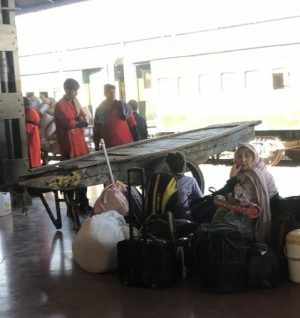
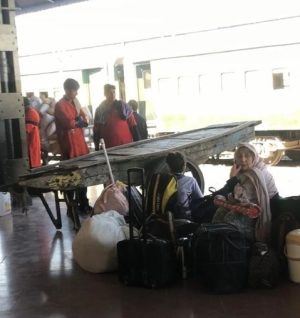
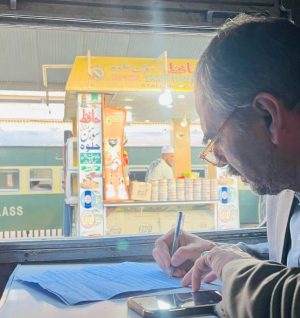
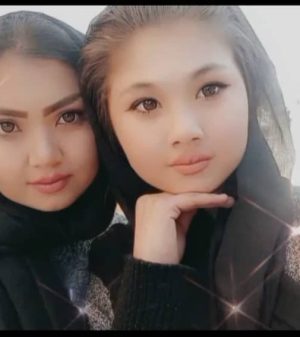
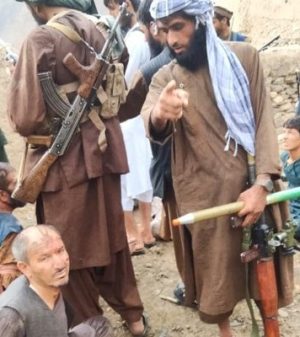
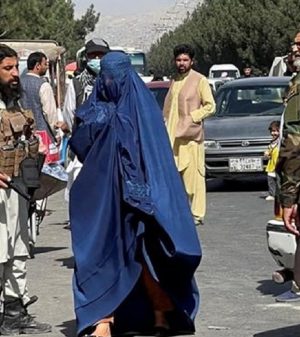
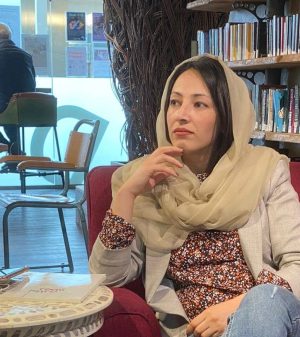
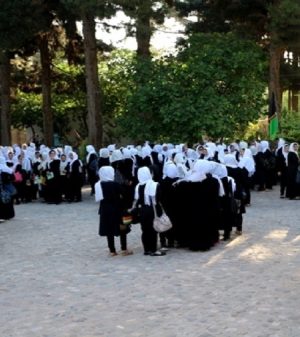
Add Comment